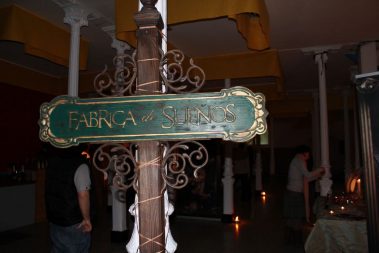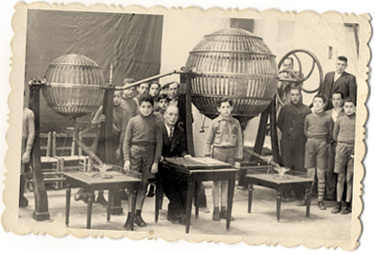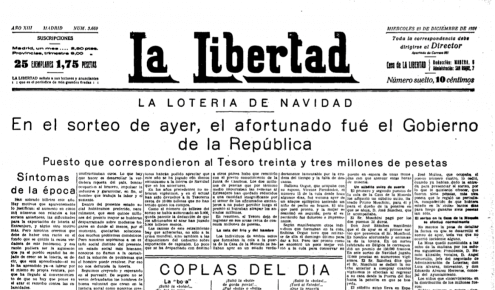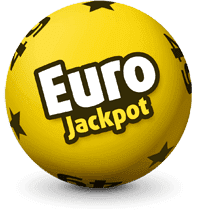
Playing the lottery is a tradition in Spain, it is one of the most popular games for Spaniards for hundreds of years. And recently also for interested people from other countries that play through the internet attracted mainly by the extraordinary raffle prizes.
“Playing the lottery” as “Echar la quiniela” has a shocking role in the history of the Spanish people, since the National Lottery depends entirely on Loterías y Apuestas del EStado (LAE), an agency that are at the expense of the Ministry of Economy and Finance of Spain.
This is a rare case for other countries, but Spanish players and visitors, and lastly for players from other countries this fact it is not important at all.
The history of the lottery in Spain
The first draw held in Spain was on December 10, 1763 and came from the hand of the Marquis of Esquilache during the reign of Charles III, copying a tradition of Naples and with a structure very similar to the current Primitiva Lottery.
It is possible that this data is one of the facts about the lottery that you did not know.
A few years later, 48 years specifically, in the year 1811, it took a new format called “modern lottery” was established in Cadiz by Ciriaco Gonzales Carvajal.
One of the variations that was introduced was that in this way funds were provided to the Public Treasury, since at that time it had run out of resources due to the War of Independence
The lottery is awarded with the distinction of “Real”.
This same year, on November 25, the Royal National Lottery of Spain was established. And it was not until almost a year later, specifically on March 4, 1812, when the first draw was held, settling in different provinces.
Two years later the National Lottery was established, it was February 28, 1814; celebrating the first big draw in the city of Madrid.
The lottery survided different troubled moments to establish its name, since depending on who took the power, made changes that they thought convenient, going from successively call it “Modern Lottery” to “National Lottery”, then “Modern” again, until after the death of Fernando VII the definitive name of “National Lottery” was established.
There were two extraordinary Christmas drawings in the same year
Another curiosity about the lottery that you may not have known, is that during the Civil War period in Spain, each side organized its own “national lottery”.
Both sides, “the national” and “the republican”, were aware of the economic importance that said lottery meant in revenue for public finances. The income from this concept came to mean 1% of GDP (Gross Domestic Product), equivalent to 3% of the total income of the state.
After the war, in 1940 an amount close to 320 million pesetas were collected (equivalent to 1.98 million euros).

Year after year the amount colleted for the lottery increases.
Over the years, an increase in revenue was noticed. By 2015, 8,780 million euros were raised, and currently over 10 billion euros are collected through the sales of this game of chance.
As the years go by, the way to carry out the raffles has varied, except for the extraordinary Christmas raffle, which continues to be celebrated in a traditional manner consisting of a drum for numbers and another for prizes and each ball listed means a number.
In the big drum there are as many numbered balls as tickets enter the draw.
The rest of the raffles, whether is a weekly, special or even extraordinary raffles(except the aforementioned Christmas), uses a system of multiple drums.
This modality was realized for the first time in the year 1962 in the Spanish Theater of Madrid.
Every week there are 2 ordinary lottery raffles
Due to the number of interested people, the number of draws that are made per week is quite significant.
The drawings are held on Thursdays and Saturdays each week and during the year there are special raffles with special prizes. These tickets have received an international fame that currently makes international sales through the internet for everyone (Through our platform, LottoHoy, you can also purchase tickets for various of these raffles).
The most famous raffles are those that are made at Christmas and the day of the “El Niño”, also known as the draw of the Thre Wise men, concretely on December 22 and January 6. In this way, those who buy, bet on luck to start the new year in the best way.
Although in these last dates, the number of raffle sales is increased both nationally and internationally, the odds of winning the “El Gordo” are 1 in 100 thousand for each different number purchased.
The year in which the public treasury won “el gordo”
Only once in history the jackpot was left without a “winner”, since the number 24717 of the Christmas raffle of the year 1931, was not sold and the prize amount went to the government treasury.

The sale of lottery tickets through internet
With the arrival of the internet, lottery tickets have been made easier to buy. Those who regularly play, previously used multiple routes to obtain their favorite number, but now the system has been made easier, since buyers should only look for the numbers that suit their needs.
Most of the sales are made at Christmas, where even close to 50% are made by Spaniards who are outside the country, or foreigners who are outside and who are simply betting on a stroke of luck through them.
Where is the Christmas lottery more played?
Within Spain, Soria is the province where more money is played per person, but in general is Madrid where the amounts of play per province is bigger, followed by Barcelona and Valencia.
The Spaniards have grown up with this tradition of buying a lottery for Christmas and it is also at this time when tourists and visitors do not miss the chance to bet on luck by taking advantage of their visit to enjoy the cities and learn from their customs.
The lottery is not exempt from superstitions
There are many superstitions, tricks and ways that have been adapted to lottery players over time, and that without a doubt are passed from generation to generation, always with the desire and the illusion of winning.
Surely the curiosities about the lottery that you did not know, and that thanks to this article you now know you have left a knowledge about this tradition that comes from many years ago.







